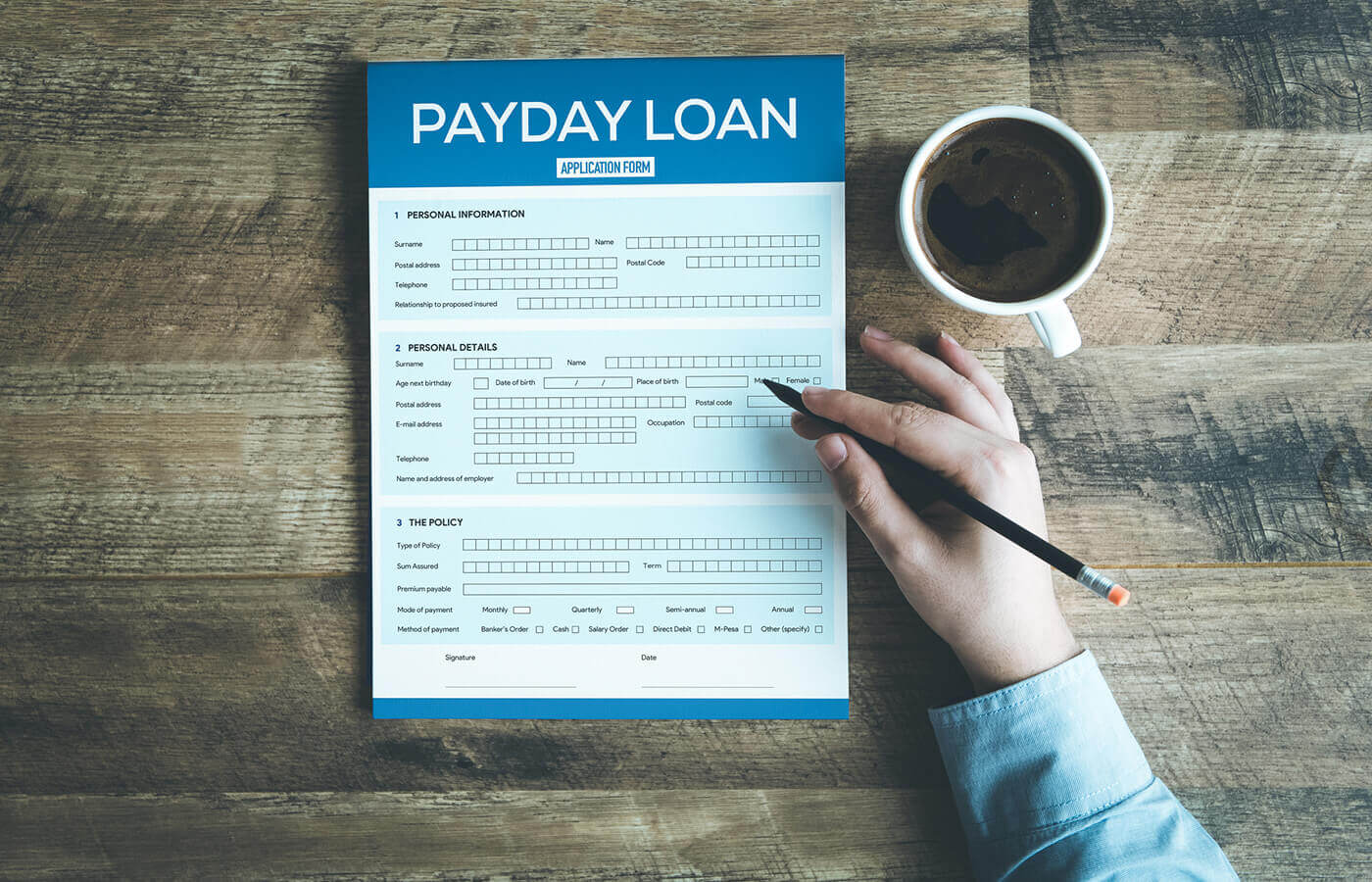How Fast Cash services enhance short-term borrowing needs
Wiki Article
A Comprehensive Overview to Home Loans: Services and Options Explained
Charting the world of mortgage can be complicated. Various options exist, each with unique functions and ramifications for possible home owners. Understanding the differences between conventional and government-backed fundings is vital. Moreover, the application procedure includes careful paperwork and pre-approval steps that several overlook. As debtors commence on their home-buying journey, knowing how to handle these duties efficiently might mean the difference in between financial stability and challenge. What approaches can equip them on this course?Recognizing Home Loans: Types and Terms
Understanding the different kinds of home mortgage and their connected terminology is crucial for prospective home owners, as it equips them with the expertise required to make informed economic decisions. Home fundings can be broadly categorized into fixed-rate and adjustable-rate home mortgages. Fixed-rate home mortgages preserve a constant rate of interest over the life of the financing, offering stability in regular monthly repayments. Conversely, variable-rate mortgages feature rates of interest that might fluctuate after a preliminary set period, possibly leading to reduced preliminary payments however raised future costs.Additional terms is essential for clarity. Principal describes the funding quantity borrowed, while interest is the expense of borrowing that quantity. The term of the lending indicates its duration, normally varying from 15 to 30 years. Comprehending these basic ideas makes it possible for prospective customers to browse the complex landscape of home financing, ensuring they pick the right financing choice that straightens with their financial scenario and long-lasting objectives.
Traditional Lendings vs. Government-Backed Loans
A significant distinction in home funding exists between government-backed financings and standard finances, each satisfying various debtor demands and conditions. Traditional financings are not guaranteed or guaranteed by the federal government and usually require greater credit rating ratings and down repayments. They are typically interesting customers with secure monetary histories, as they might supply affordable rate of interest and terms.In comparison, government-backed financings, such as FHA, VA, and USDA loans, are developed to help details teams of consumers, consisting of new property buyers and professionals. These car loans usually include reduced deposit requirements and even more flexible debt criteria, making them available to a wider variety of individuals.
Ultimately, the option between government-backed and standard loans pivots on the consumer's economic circumstance, lasting objectives, and qualification, making it vital to thoroughly examine both alternatives prior to making a choice.
The Role of Rate Of Interest Rates in Home Funding
Rate of interest play an important role in home financing, influencing customers' choices between variable and set price lendings. The option in between these alternatives can considerably impact month-to-month settlements, affecting overall price. Comprehending how passion prices operate is essential for any individual maneuvering via the mortgage procedure.Dealt With vs. Variable Rates
Property buyers deal with a vital decision when choosing in between repaired and variable prices, as this option greatly impacts the cost of funding over time. Fixed-rate home loans use security, securing a rates of interest for the life of the financing, which can be useful in an increasing rate of interest price atmosphere. This predictability allows homeowners to budget plan more efficiently. Alternatively, variable-rate mortgages, or variable-rate mortgages (ARMs), commonly start with lower first rates that can fluctuate based on market problems. While this might lead to lower initial settlements, customers deal with the danger of boosted rates in the future. Eventually, the option in between variable and set rates depends upon specific economic situations, risk resistance, and assumptions regarding future rates of interest trends.Influence On Monthly Settlements
When evaluating home financing choices, the influence of interest rates on month-to-month repayments is a key aspect to contemplate. Rates of interest directly influence the overall expense of loaning, impacting just how much a debtor will pay monthly. A reduced rates of interest cause smaller sized month-to-month settlements, making homeownership a lot more affordable. Conversely, greater prices can greatly increase monthly obligations, possibly stressing a property owner's budget plan. Furthermore, the car loan term plays an essential role; longer terms may spread payments out but can cause paying even more passion over time - Installment Loans. Recognizing exactly how passion rates communicate with funding quantities and terms is vital for borrowers to make informed economic decisions and choose a home mortgage that straightens with their lasting financial objectivesHome Loan Brokers vs. Direct Lenders: Which Is Right for You?
When considering a home mortgage, prospective borrowers have to comprehend the distinctive roles and obligations of mortgage brokers and straight lenders. Each choice provides its very own advantages and disadvantages, which can substantially influence the overall price of financing. An informed option requires mindful analysis of these factors to identify the ideal suitable for specific needs.Roles and Duties Defined
Navigating the complexities of home financing calls for a clear understanding of the functions and obligations of mortgage brokers and direct lenders. Fast Cash. Home loan brokers work as middlemans, connecting debtors with lending institutions. They examine a consumer's monetary situation, curate lending choices, and guide customers via the application process, frequently leveraging several lender partnerships to secure positive terms. Conversely, direct lenders, such as financial institutions and cooperative credit union, offer financings directly to consumers. They deal with the whole financing procedure, from application to financing, with an emphasis on their own products. Each option presents distinct opportunities for obtaining financing, making it crucial for consumers to examine their requirements and preferences when choosing between engaging a mortgage broker or functioning with a straight lending institutionDisadvantages and pros Contrast
Selecting between a home loan broker and a direct lender can significantly affect the home financing experience, as each alternative uses one-of-a-kind advantages and disadvantages. Home loan brokers work as middlemans, offering accessibility to numerous lenders and potentially much better rates, while simplifying the finance procedure. Nevertheless, they may bill costs and rely upon commission structures that might influence their referrals. On the various other hand, direct lending institutions simplify the process by using internal financings, which can cause faster approvals and less issues. Conversely, they might have a limited choice of items and much less adaptability relating to rates. Inevitably, the choice rests on private preferences, monetary scenarios, and the preferred degree of assistance throughout the home loan trip.check this site out
Price Ramifications Evaluated
While examining the price effects of home loan brokers versus straight lenders, possible home owners have to take into consideration different elements that can significantly impact their total expenses. Home loan brokers normally bill fees for their services, which can differ this link significantly, influencing the general financing price. They usually have access to a wider range of financing items and affordable prices, possibly conserving consumers cash in the lengthy run. On the other hand, straight lending institutions may offer a more simple process with possibly reduced upfront costs, yet their funding choices may be restricted. It is crucial for property owners to compare rates of interest, fees, and terms from both brokers and loan providers, ensuring they make an enlightened decision that lines up with their financial objectives and demands.The Home Mortgage Application Process: What to Anticipate
The home finance application process can typically feel intimidating for several applicants. It usually starts with collecting necessary documentation, including proof of earnings, credit rating, and individual recognition. Lenders use this information to analyze the candidate's financial security and figure out loan eligibility.Next, applicants submit an official application, which may involve filling up out online kinds or supplying details personally. During this stage, lenders review numerous variables, such as debt-to-income proportion and credit report, to choose funding terms.
Once pre-approved, the lending institution will conduct a detailed evaluation of the residential or commercial property to establish its value lines up with the loan amount. This phase may likewise consist of added background checks.
After final authorizations and problems are fulfilled, the financing is refined, bring about the closing phase. Understanding each step equips candidates, making the trip smoother and much more convenient as they approach homeownership.
Tips for Handling Your Home Mortgage Responsibly
Effectively navigating the home loan application process is simply the beginning of a responsible monetary trip. Handling a mortgage calls for attention to numerous essential techniques. First, borrowers should develop a clear budget that fits monthly home mortgage payments, building tax obligations, and insurance coverage. On a regular basis examining this spending plan helps prevent overspending and guarantees prompt repayments.
Additionally, making added settlements when possible can considerably decrease the finance principal and complete interest paid in time. Customers ought to likewise preserve open lines of communication with their loan provider, specifically in times of economic trouble - Cash Advance. This can lead to possible solutions such as lending alterations or re-financing options
Lastly, it is suggested to check credit history frequently. A great credit rating score can provide possibilities for far better finance terms in the future. By complying with these suggestions, homeowners can navigate their funding responsibilities successfully, informative post guaranteeing long-term financial health and wellness and security.
Regularly Asked Concerns
What Are Closing Prices and Just How Are They Determined?
Closing costs encompass costs related to completing a mortgage, including appraisal, title insurance policy, and financing origination charges. These costs generally vary from 2% to 5% of the car loan quantity, varying based upon area and loan provider.
Can I Get a Home Mortgage With Bad Credit?
Yes, people with negative credit can qualify for a home finance, though options may be limited. Lenders usually require greater deposits or passion prices, and discovering government-backed financings may enhance chances of authorization.
What Is Mortgage Insurance policy and When Is It Required?
When a debtor makes a down settlement of much less than 20%, home loan insurance coverage secures lending institutions versus default and is commonly required. It ensures that lending institutions recoup losses if the customer falls short to pay back the lending.Exactly How Does Refinancing Job and When Should I Consider It?
Refinancing entails replacing an existing mortgage with a brand-new one, usually to safeguard a reduced rates of interest or modification funding terms. House owners ought to consider refinancing when rates of interest go down substantially or their monetary situation boosts.What Occurs if I Miss a Home Loan Payment?
If a mortgage repayment is missed, the lending institution typically evaluates late charges, reports the delinquency to credit bureaus, and may initiate foreclosure proceedings if payments remain to be disregarded, eventually endangering the property owner's building.Fixed-rate home mortgages preserve a consistent rate of interest rate over the life of the lending, providing security in month-to-month repayments. A considerable distinction in home funding exists in between traditional financings and government-backed financings, each catering to various borrower demands and scenarios. In contrast, government-backed lendings, such as FHA, VA, and USDA lendings, are made to help particular teams of debtors, including new property buyers and veterans. Rate of interest prices play an important role in home funding, affecting consumers' decisions between variable and set price fundings. Fixed-rate mortgages provide security, securing in a passion rate for the life of the finance, which can be beneficial in a rising rate of interest rate atmosphere.
Report this wiki page